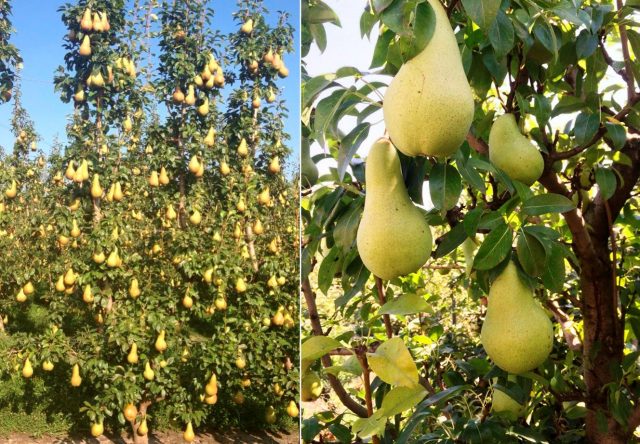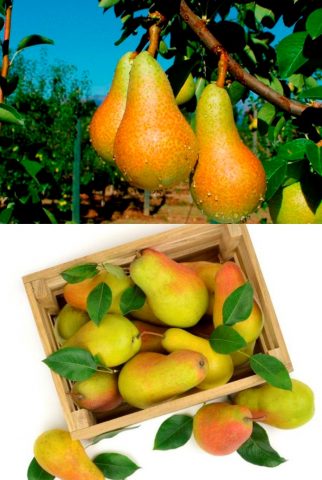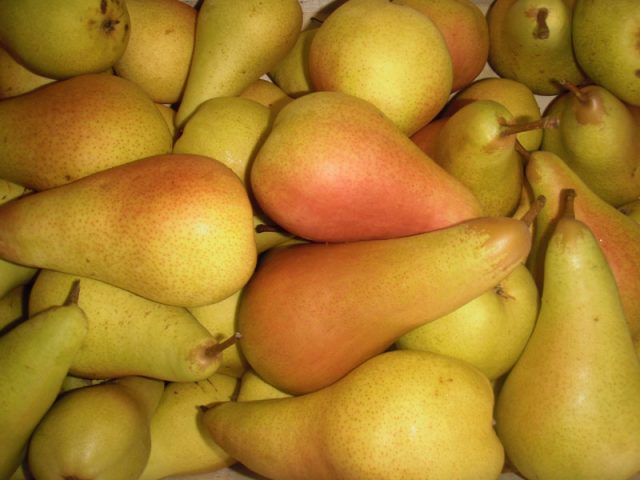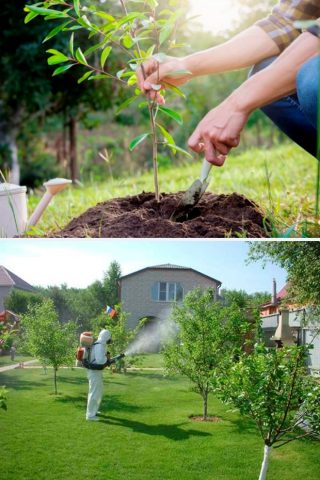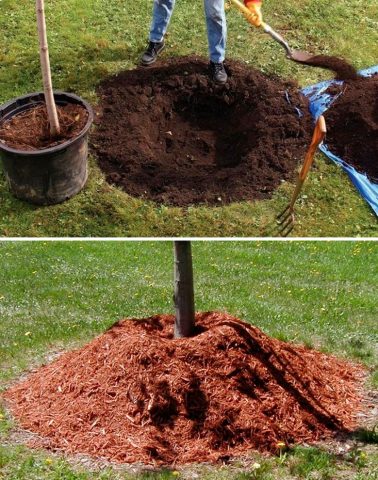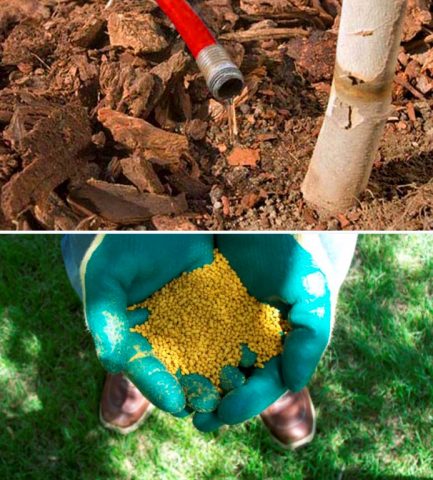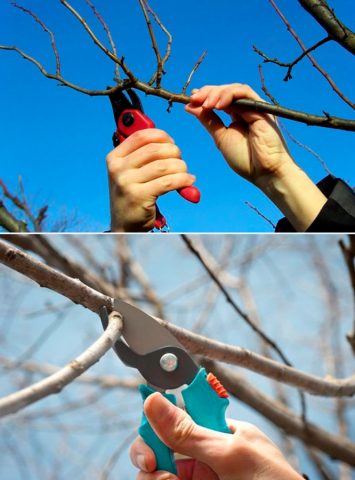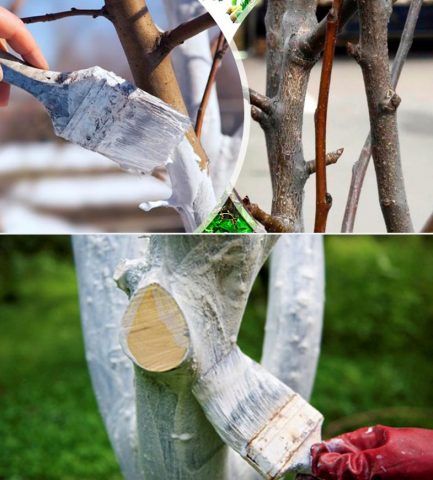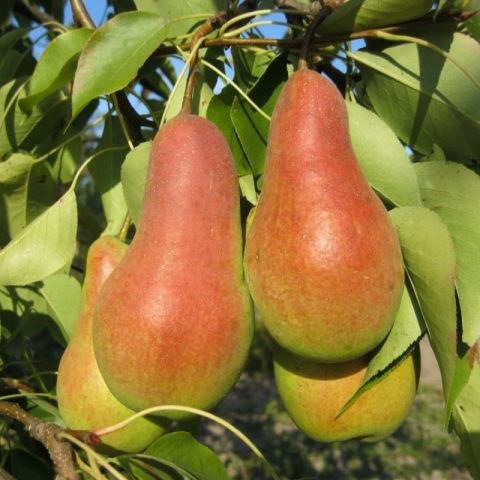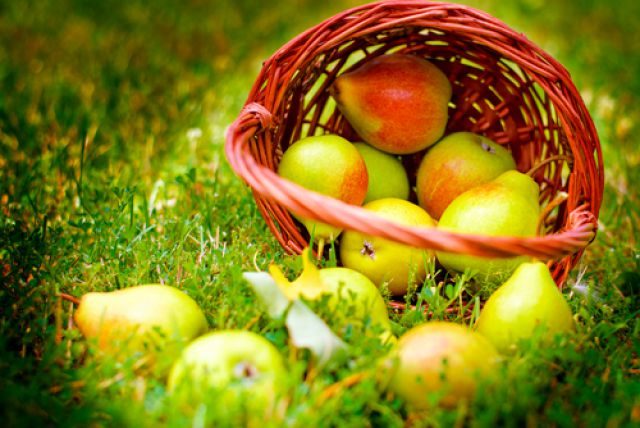Content
Bred by French breeders, Abbot Vettel's pear has become popular since the late 19th century. The variety quickly spread along the Mediterranean coast, thanks to its taste. Produces well in warm, humid climates. Therefore, it is grown in industrial plantings in the south of Spain, Italy, France. To grow this variety in the Russian region, you need to know the conditions for its successful growth.
Description of pear Abbot Fetel
Russian gardeners showed great interest in the French garden cultivar for the excellent quality of the fruits and good adaptability in a new place. Description of the pear variety Abbot Fetel and his image in the photo will help novice gardeners not to confuse him with other representatives of the Rozanov family:
- the tree is medium-sized and reaches 3-4 m in height;
- the crown is wide, pyramidal, with dense foliage;
- leaves are large, light green;
- stems grow at an angle of 400-450, with further deviation to a horizontal position;
- fruits are elongated, large, light in color with a pink side on the sunny side.
When the pears begin to ripen, you need to make sure that they do not break off the branches with their weight and, if necessary, carry out a garter. This is especially true for young trees with thin shoots.
The main fruiting occurs in the 8th year. The pear variety Abbot Vettel can produce a harvest for 2 decades.
The plant is considered resistant to such unfavorable conditions as:
- cold - tolerates frosts down to about -170FROM;
- insects and fungal diseases;
- drying out of the soil.
The pear is self-fertile - it pollinates itself. Therefore, it is not necessary to plant additional pollinators in the neighborhood. However, it was noted by gardeners that the proximity of other pear varieties has a beneficial effect on the yield of the Abbot Vettel variety.
Characteristics of the pear fruit Abbot Vettel
If you follow the recommended agricultural practices for pears, then 3-4 years after planting in early September, you can already harvest the first crop. Abbot Vettel pears have proven to be excellent taste and rich in vitamin composition.
The fruits are in great demand due to their appetizing appearance:
- oblong shape, up to 20 cm long, up to 8 cm in diameter and weighing 200-250 g;
- thin, yellowish-green in color with a pink barrel when ripe;
- the pulp is often white, but it is also creamy, juicy and sweet in taste with a pleasant delicate aroma.
When fully ripe, they can hang on a tree for a long time. When removing the fruit, you must try not to damage them. Pears are stored in the refrigerator at a temperature not higher than +50C. Before storage, the fruits are allowed to rest in a dry room for several days.
The taste and texture of the fruits of Abbot Vettel allow them to be eaten fresh or prepared from them:
- compotes;
- jams;
- jam;
- marmalade;
- juices.
Pros and cons of the variety
Those who are thinking about growing Abbot Vettel's pear on their site need to know that this cultivar has more advantages than disadvantages. Its positive qualities have made it possible for several centuries not only to preserve the variety, but also to expand the growing area. The main advantages of the variety:
- sweet juicy pulp;
- full presentation;
- good safety during transportation;
- long shelf life;
- drought resistance;
- self-pollination of flowers;
- resistance to diseases and pests.
There are few disadvantages. Russian gardeners note the main one: weak frost resistance. Already at a temperature of about -200With a tree can freeze and not revive in spring. Therefore, in the cold regions of Russia, this variety must be covered before the onset of frost. Another disadvantage is the average yield. However, this indicator varies greatly under different growing conditions.
Optimal growing conditions
High yield depends on the composition of the soil. For a pear, it should be light and fertile. The Abbot Vettel variety does not grow on soil with high acidity, but prefers neutral soil. To balance the condition of the soil, they dig up the site and add lime or wood ash to it.
Waterlogging of the roots is considered harmful to the pear Abbot Vettel. Therefore, it is necessary to provide that the groundwater on the site goes deeper than 3 m. The area for the pear must be open to the sun. Sunlight is essential for a tasty, rich harvest.
Planting and caring for a pear Abbot Vettel
The pear is planted by Abbot Vettel in spring or autumn. The most favorable is the autumn planting. The seedling should be 1-1.5 years old. If the root system is open, then you need to make sure that it is healthy. Leaves and shoots should also be free from signs of disease and wilting.
The place of planting, the condition of the seedling and, in the future, the necessary care for the crop have a great influence on the harvest:
- regular feeding;
- necessary watering;
- measures to protect against diseases and rodents;
- loosening the soil;
- soil mulching;
- whitewashing the trunk.
Proper preparation for winter is of particular importance for regions of Russia with cold winters, since Abbot Vettel's pear tree can die in severe frosts.
Landing rules
It is better to plant pear seedlings Abbot Vettel in the garden next to the apple trees. If planting is carried out in rows, then the distance between trees in a row should be at least 5 m, and between rows - 6 m. The site should be well lit by the sun and, preferably, without drafts.
The seedlings are examined, dry roots are removed and treated with a mixture of clay and ash in a ratio of 1: 2. If the root system is closed, then the seedling is placed in a hole along with an earthen clod. After preparing the site and seedlings, they proceed to the planting itself:
- Dig a hole about 0.8 m deep and 1.0 m wide.
- Pour some earth into the hole to make a mound.
- A seedling is placed on a mound and the roots are spread.
- Fill the hole with earth to the level of the site.
- Tamp a little around the trunk.
- A hole is made and watered abundantly.
- The trunk circle is mulched.
The root collar of a pear seedling Abbot Vettel should be above ground level. It is advisable to install a support next to the trunk and tie a young tree to it.
Watering and feeding
Despite the fact that the Abbot Fetel pear belongs to drought-resistant crops, it needs watering, especially during the period of growth and ripening of fruits. An already mature tree can be watered less frequently. After each watering, it is recommended to carry out loosening to enrich the soil with oxygen and destroy weeds.
For good fruiting, feeding the Abbot Fetel variety is necessary throughout the growing season. Wanting to get a rich harvest, you cannot leave the plant without additional nutrition. In the fall, before winter rest, manure, peat, humus are introduced into the trunk circle. In the spring, add nitrogen (urea 50 g per bucket of water), potash, phosphorus fertilizers.
Pruning
Pear Abbot Vettel independently forms the crown and does not need decorative pruning. The culture is sanitized once a year in the spring in order to free the tree from diseased, dried up and unnecessary branches.
The stems of the Abbot Vettel variety grow almost vertically upward.So that this does not interfere with the fruit, the branches are sometimes artificially tilted to a horizontal position, unnecessary and non-bearing ones are removed.
Whitewash
To provide protection from sunburn, frost, pests and rodents, the trunk of the Abbot Vettel variety is whitewashed with lime 2-3 times a year. The procedure must be carried out in the spring after the snow melts and in the fall before the shelter for the winter. In the summer, the trunk is whitewashed at will and need.
You can buy a whitewash solution at a store or make it yourself. Mix 1.5 kg of clay with 2 kg of lime in 1 bucket of water. An adult plant is whitened to the lower branches, and it is recommended to cover the seedling completely.
Preparing for winter
Together with the introduction of autumn fertilizers, each tree should be well watered before wintering. The shape of the shelter depends on what kind of frost occurs in winter. It must be remembered that Abbot Vettel's pear is not a winter-hardy culture.
According to reviews on the Internet, Abbot Vettel's pear in the Moscow region should be covered for the winter with spruce branches or snow. You can also use building insulation materials, burlap and film.
Yield
The first fruits in southern countries ripen in early September. Fruiting at the Abbot Fetel pear has been annual for about 20 years. The yield is moderate, but it is compensated by the palatability and large size of the fruit.
Gardeners recommend rationing the harvest, since at a high level the fruits become smaller. In the first year, you need to remove up to half of the ovaries.
Calorie pear Abbot Vettel
The fruits of the pear Abbot Fetel can be safely used for various unloading diets due to their low calorie content. The fruits are rich in various vitamins, trace elements and fiber. The low acid content makes pears taste sweeter than apples, although the sugar content is less. Therefore, the calorie content is only 48 kcal per 100 g of delicious sweet fruit.
Diseases and pests
The pear variety Abbot Vettel is resistant to various forms of fungal diseases and insect pests. For prevention, with the onset of spring and before the start of active sap flow, the entire tree is sprayed with fungicides against scab.
Reviews about pear Abbot Fetel
Conclusion
Pear Abbot Vettel bred for warm climates. Therefore, the variety is recommended for the southern regions of Russia. You will only need the usual agrotechnical care. If you want to plant this tree in a region with a cold winter, then you need to carry out measures for a thorough shelter for the winter. Then there is the opportunity to enjoy its delicious fruits in the fall.
